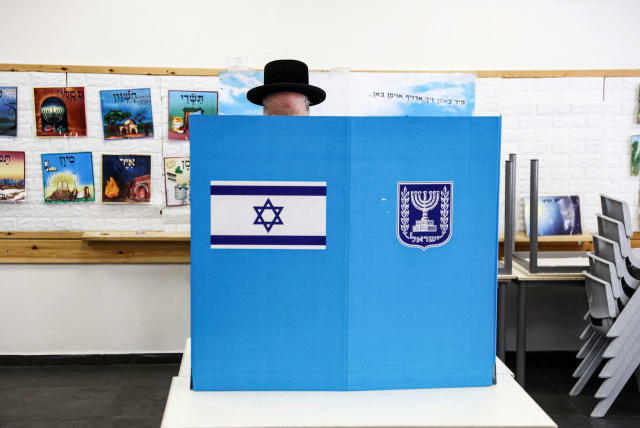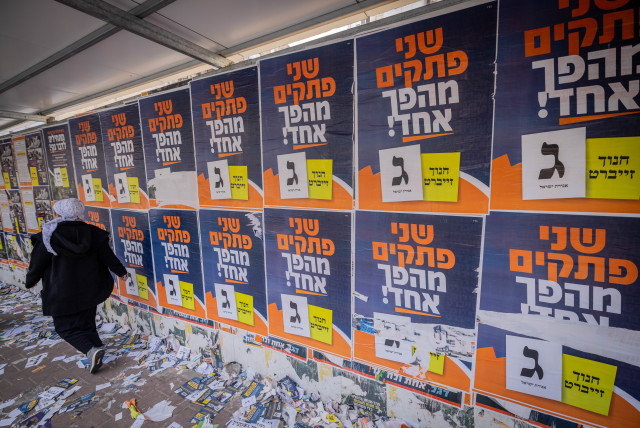Tuesday's election was a reminder of what clean politics could look like - comment

Election campaigns can indeed be divisive and often nasty. But they do not have to be, and the municipal election this week was a reminder of this.
In a poll by the Israel Democracy Institute in early February, over 70% of Israelis said they believed that the Hamas massacre on October 7 and ensuing war warranted a new national election, of whom 38% said they preferred an election at the end of the war and 33% said they wanted the Knesset to disband immediately and for the country to hold an election after the minimum 90 days deferment.
The prime minister, other cabinet ministers, and Knesset members from the coalition understandably oppose an election, as polls have the current coalition (not including National Unity) losing much of its power. The reason they have given, however, is that an election would immediately lead to divisiveness that the country cannot afford at the moment.
Even National Unity chairman Benny Gantz and even some members of the opposition Yesh Atid party have been hesitant to call for an early election. No one wants to be accused of disrupting the unity of purpose that nearly all Israelis feel about the war.
Election campaigns can indeed be divisive and often nasty. But they do not have to be, and the municipal election this week was a reminder of this. Granted, municipal elections are not as fateful as national elections. But amongst mainstream Israelis (excluding the haredi and Arab minorities), the elections passed quietly. The war is at the forefront of everyone's minds, and while politics matters – the war matters more.
Regional heads from border areas are setting an example
The same is true on the national level. Sure, a general election will bring disagreements to the fore. But Israel is at a unique point in its history, and much is at stake. Instead of current attempts to blur differences of opinion in the sake of unity, an election can be the framework for much-needed national debate on key issues, but a debate without the nasty slandering and personal attacks.
Since the last municipal elections in 2018, Israel has gone through five national elections that were increasingly toxic, a pandemic, and now a war. Throughout, municipalities have proven to be relatively stable, and even, in some cases, ingenuous and dedicated.
As these words are being written, most of the 11 mayors and regional council heads from the Gaza and northern border areas are setting an example for public servants' dedication to the good of their constituents.
Tuesday's election was a reminder of the vitality of stable institutions of government, and of a change of governance relatively void of toxicity and hate speech.
Maybe we can hold a national election to these standards as well.
Jerusalem Post Store
`; document.getElementById("linkPremium").innerHTML = cont; var divWithLink = document.getElementById("premium-link"); if (divWithLink !== null && divWithLink !== 'undefined') { divWithLink.style.border = "solid 1px #cb0f3e"; divWithLink.style.textAlign = "center"; divWithLink.style.marginBottom = "15px"; divWithLink.style.marginTop = "15px"; divWithLink.style.width = "100%"; divWithLink.style.backgroundColor = "#122952"; divWithLink.style.color = "#ffffff"; divWithLink.style.lineHeight = "1.5"; } } (function (v, i) { });

